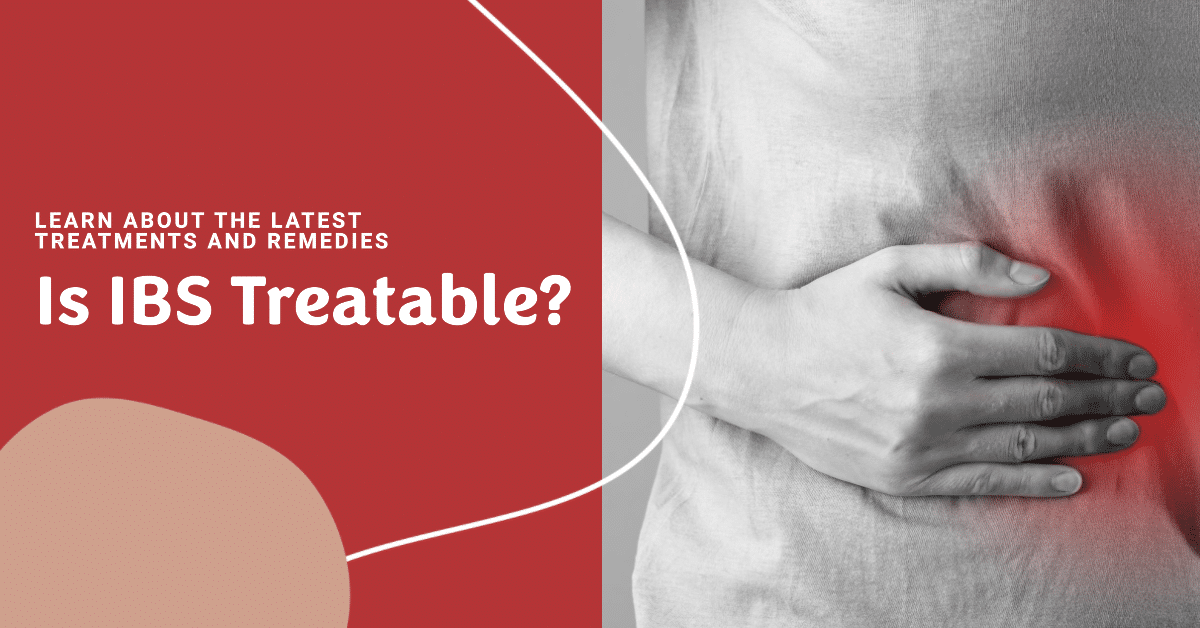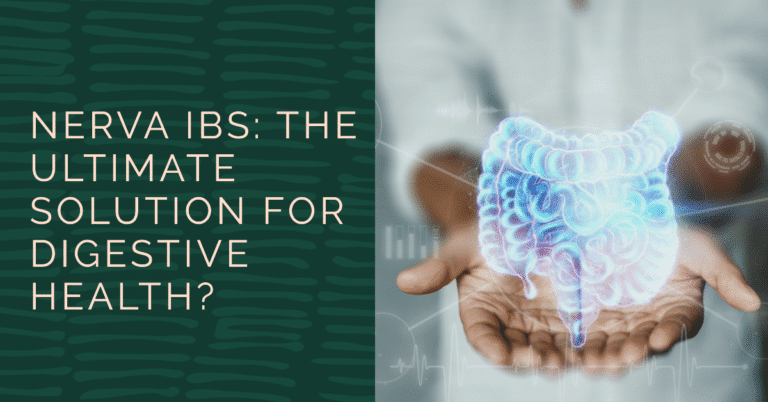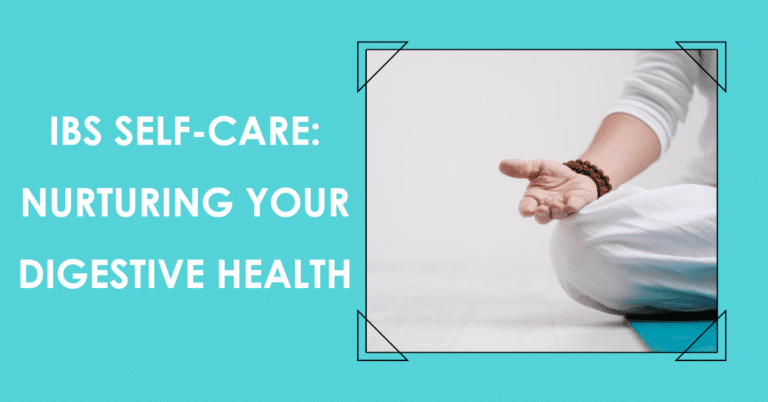Is IBS Treatable? – A Guide to Breaking Free From Digestive Discomfort

Irritable bowel syndrome (IBS). For those who suffer from it, just reading those three little words is enough to cause a wave of anxiety, dread, and abdominal discomfort. But is IBS treatable? Let’s find out…
IBS disrupts lives, ruins plans and generally makes everything more difficult. But what if I told you there was a way to keep your IBS symptoms in check?
In this complete guide, I’ll give you all the tools you need to permanently treat IBS and take back control of your life.
From incorporating stress management techniques like meditation into your life to making actionable dietary changes, it’s more than possible to treat IBS safely and naturally.
Let’s dive in and conquer those unwanted symptoms of IBS now!
IBS 101: Let’s Break It Down
Before we can cure something, we need to understand it. IBS is what’s known as a functional gastrointestinal disorder, meaning that the bowel doesn’t work as it should [1].
The digestive system goes haywire, causing issues with bowel movements and how the gut functions. Doctors aren’t entirely sure what causes IBS, but possible culprits include:
- Muscle contractions in the intestine
- Inflammation in the digestive tract
- Changes in gut microbes
- Sensitivity to certain foods and stress
While IBS can’t be cured with something as simple as an antibiotic, making certain changes can help get your gut back on track.
But first, what exactly are we dealing with here?
The Nightmare Known as IBS Symptoms
Let’s talk about what it’s actually like living with IBS. Symptoms may include:
- Cramping and abdominal pain that comes and goes
- Bloating that makes you look pregnant
- Excess gas or burping
- Alternating constipation and diarrhea
- Mucus in the stool
- That horrible incomplete bowel movement feeling
- Food sensitivities or triggers
- General gastrointestinal upset
And we haven’t even gotten to the social side effects of IBS: anxiety about symptoms flaring up, avoiding activities, calling in sick to work, embarrassment because it seems like you always need a bathroom.
It’s no wonder people with IBS report a lower quality of life! But there are better days ahead.
Confirming Your Suspicions: Getting an IBS Diagnosis
If you’re experiencing those awful symptoms, the first step is to get properly diagnosed by a doctor.
There’s no one test for IBS, so your gastroenterologist will take into account:
- Your description of symptoms
- Medical history
- Physical exam
- Bloodwork to rule out other conditions
- Possible stool sample tests
- Scans like a CT or colonoscopy
It’s important to rule out other diseases and ensure you’re dealing with IBS.
Getting that official diagnosis is frustrating, but also relieving. And it means you can move forward with the best treatment plan.
Time to Take Your Life Back: Effective IBS Treatments
So you’ve been diagnosed with IBS. Now what? The good news is there are many ways to take back control of your gut health and live symptom-free.
IBS treatment may involve:
- Diet changes: Figuring out which foods trigger your symptoms is key. Making dietary changes such as avoiding FODMAPS on the low FODMAP diet may help improve your situation.
- Medication: Antispasmodics, laxatives, antidiarrheals and antidepressants are often prescribed or you can get many of them over-the-counter.
- Probiotics: Replenishing healthy gut bacteria can reduce GI symptoms.
- Stress management: Counseling, CBT (Cognitive behavioral therapy), meditation, gut-led hypnotherapy with Nerva IBS, and exercise to prevent stress-related flare-ups.
- Supplements: Some patients find digestive enzymes, peppermint oil or curcumin helpful.
Work closely with your gastroenterologist to develop a custom treatment protocol. Make lifestyle changes, take medications as directed, and communicate openly with your doctor.
Lifestyle Hacks for Kicking IBS in the Gut
Medication can only take you so far. To truly overcome IBS, you’ll need to optimize your lifestyle habits.
Try these daily practices:
- Eat smaller, gentler meals
- Hydrate with water and herbal tea
- Prioritize sleep, aiming for 7-9 hours
- Reduce stress through yoga, meditation, journaling
- Exercise to improve gut motility
- Take probiotic supplements
- Track symptoms and triggers in a journal
- Avoid known trigger foods and eat gut-friendly foods
With consistency, these healthy habits can get your digestive system back on track. It’s work, but so worth it.
Is There a Cure? Conquering IBS Once and For All
IBS is chronic, meaning it lasts for the long haul. But “incurable” doesn’t mean untreatable.
While there’s no universal cure, with the right treatment you can virtually eliminate symptoms and live a normal, happy life.
It may take patience, but you can get to a place where IBS no longer controls your days.
Follow your treatment plan, make healthy lifestyle changes, communicate with your doctor, and don’t lose hope. Over time, symptoms will decrease in frequency and intensity.
One day you’ll realize you’re symptom-free (or close to it), holding down food, enjoying activities without worry.
By taking control of your physical and mental health, you can conquer IBS rather than letting it conquer you.
Say goodbye to the pain, embarrassment and frustration of IBS. You deserve to live fully and freely. Use this guide to find the treatment plan that finally works for you – it’s out there!
Take back your life starting today.
Disclaimer: This content is based on my personal experience as an individual diagnosed with celiac disease and IBS (Irritable Bowel Syndrome) who follows a strict gluten-free diet. This does not constitute medical advice. Please consult a medical professional, nutritionist, or qualified dietitian for personalized, professional advice.



